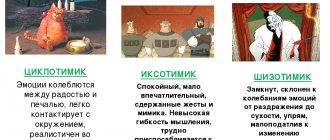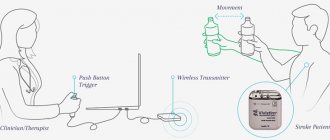Human resources are his potential, strength. In psychology, this includes abilities, knowledge, abilities, skills, beliefs, values, states, intelligence, positive thinking, high self-esteem, mental and physical health, and much more. In general, everything that supports a person inside and out helps him live productively and effectively. The more of these elements a person has, the more effective his relationships with the world and with himself are. Let us examine in more detail what human resources are and what they are.
Health (physical and psychological)
A healthy human body, which receives the required amount of rest and food, and also expends its internal sexuality and energy in the required amount - these are the internal resources of a person, on which most of the success in life depends.
The psychological component (mental processes and its functions) are also regarded as fundamental resources. The internal components of the personality psyche are erudition and erudition, imaginative and abstract thinking, intelligence, the ability to use information, the ability to analyze and synthesize, attention, quick switching from one object to another, will and imagination.
Components of a person’s personal resources
In psychology there is no unified classification of sources of strength. Let us summarize these elements in the form of a table of internal and external human resources:
| Domestic | External |
| Time | Information |
| Health | Connections |
| Intelligence | Money |
| Emotions | Power |
Sometimes hidden psychological resources are also identified. These include energy, perception, awareness, intention.
Now let’s look at the most important personal (internal) resources of a person in more detail. Advancement up the career ladder, success in your personal life and in relationships with friends, the nature of your relationships with society, and life satisfaction depend on them.
Health and physical strength
Psychological comfort depends on physical comfort. It's hard to think about anything else if you're in pain or if your life is in danger. In addition, strong immunity, good health and a physically developed body help a person to be active and mobile.
For example, we all know how a common cold can unsettle you for weeks and disrupt all plans. Or this example of the importance of health. Drivers and others who sit a lot know how important it is to keep their back healthy. Otherwise, you may find yourself bedridden and unable to work.
In addition to physical health, psychological well-being is also important. Therefore, it is necessary to get enough sleep, eat right, avoid stress, and solve emerging psychological problems in a timely manner.
Important! Physical health, well-being and a strong body are the key to everything in our lives.
Intelligence
Intelligence is translated from Latin as “perception”, “understanding”, “understanding”, “concept”, “reason”. This is the ability to cognition, comprehension and problem solving. It is also the ability to organize activities in such a way that all the information contained in the brain will be used with maximum benefit and efficiency.
Intelligence is a more complex structure than people usually imagine. It is associated with such cognitive abilities as:
- attention;
- imagination;
- thinking;
- performance;
- perception;
- sensation;
- memory.
In addition, it is important to know that there are 9 types of intelligence:
- natural (naturalistic);
- musical;
- logical-mathematical;
- existential (philosophical);
- kinesthetic (bodily);
- interpersonal (social);
- spatial (figurative);
- linguistic (verbal);
- personal (internal).
The problem is that many people focus on only one resource - logical-mathematical intelligence (IQ). And because of this, they do not notice their true potential, do not use and ignore their inner strengths.
Positive thinking
It is important not to confuse this with blind optimism. With positive thinking, a person does not convince himself that everything is fine and does not ignore difficulties. He sees them and acknowledges them, but at the same time he is confident that he can cope with any setbacks. He is confident in himself, knows his strengths and weaknesses, and knows how to use them wisely. Such a person perceives difficulties as opportunities. Positive thinking encourages a person to pay attention to personal resources, use them, replenish and replenish them.
Self-esteem
Only with adequately high self-esteem can you achieve success in life. Low or high self-esteem leads to a person’s inadequate assessment of reality.
For example, with low self-esteem, he blames only himself for all failures and goes into self-flagellation. And with inflated self-esteem, he shifts responsibility to other people. In the first case, a person underestimates his abilities and gives in to difficulties, does not even try to express himself or try something. In the second case, a person overestimates his abilities and capabilities - because of this, he often ends up losing.
Note! With low self-esteem, a person criticizes himself as a person. With adequate self-esteem, a person criticizes his individual actions, thoughts, actions, but at the same time he maintains faith in himself and a sense of self-worth.
Skills
A skill is a skill that has been brought to automaticity. In psychology, it is customary to distinguish four types of skills: motor, mental, sensory and behavioral skills. It is worth mentioning separately about professional skills; they are based on the main four types. With the help of all these skills, a person becomes useful to society, enters it, establishes connections and takes his place in any system of relations, be it the work sphere or personal relationships.
Self-control
Self-control is the ability to remain calm and sober, to make informed decisions in difficult life situations. Without self-control, it is impossible to build harmonious relationships with others, build a career, learn something and move through life. Loss of self-control is fraught with conflicts and rash actions with disastrous consequences. A person with poor self-control can cause harm to himself and others.
Emotions and positive thinking
Various emotional states are inexhaustible resources. Internal moods can set the rhythm of both the physical body and the psyche as a whole. In this case, the resources are both a feeling of favorable emotions, such as joy, happiness, fun, peace, and a feeling of grief, sadness, anger, rage. But each emotion must have a creative function. For example, rage and anger in defending one’s rights can set personal boundaries and will not allow the opponent to violate them. But rage aimed at destroying (moral or psychological) another person already has a destructive function.
A creative perspective will allow you to develop the ability for positive thinking, which very often becomes an assistant in resolving many problems and troubles in life.
Resource replenishment techniques
This leads to the most important question: how to enter a resourceful state and set yourself up to perform specific tasks.
Activating a resource is a fairly simple action. But everyone has their own algorithm. The following recommendations can serve as tips. With their help, you can find your way to form a resource state and enter the “flow” at any moment when it is required.
So, what methods can provide quick entry “to the resource”:
- Personal motivational trainings. No, not paid programs from leading coaches or psychologists. Everything is simpler. Personal motivational training is everything that inspires and motivates you to do the right thing. For sports activities, this could be recordings of performances or films about sports. For career success - programs about outstanding people. For renovations - magazines or websites about interior design.
- Preparations for future affairs. Once something has already been started, it is easier to continue. For an article, you can write an outline in advance. For soup - prepare chopped vegetables. For jogging, take out your sneakers. Simple operations will allow you to tune in to the desired resource state.
- Postponed matters. A great life hack that allows you to increase your energy by switching between different things . Small successes in your favorite things will allow you to get the missing resource to achieve great results.
- Biorhythms. Everything is simple here: it’s easier for larks to get into the flow in the morning, for owls - in the afternoon. It is also important to get enough sleep, take care of your health and nutrition, and maintain natural physical activity.
- Minimizing emergency situations. The “squirrel in a wheel” state is not the best for entering to search for a resource. It is best to live according to Eisenhower squares and achieve excellent success in everything.
- Circle of friends. Like-minded people inspire!
- Success Diary. Recording even small successes serves as the basis for great inspiration.
After achieving a resource state, it is a good idea to use the anchoring technique. Then in the future the transition to activity and concentration will happen faster and easier.
And, of course, pamper yourself! Contentment in life is the main basis of any resource. Therefore, it is worth maintaining positivity by any means!
Interesting articles:
Planning goals and objectives for the year - 3 ways and several life hacks
How and how much sleep you need: to get enough sleep
Emotional burnout: signs and symptoms - how to fight and preventive measures
Character
Character refers to not only those traits that are highly moral and attractive to society as a whole, but also those that help an individual move toward achieving certain results. For example, anger and irritability are not very welcome in society, but thanks to them a person will always be able to stand up for himself in a difficult situation. That is why such traits are also resources. The internal resources of the individual, consisting of character, of course, must be close to the ideals of society. It is worth remembering that all character traits must manifest themselves at the right time and in the right place, in which case they will only benefit the person himself and those around him.
Personal resources are all those vital supports that are at a person’s disposal and allow him to provide for his basic needs:
- survival;
- physical comfort;
- safety;
- involvement in society;
- respect from society;
- self-realization in society.
Resources are divided into social and personal, in other words, external and internal. External resources are material values, social statuses (roles) and social connections that provide support for society and help a person from the outside. Internal resources are a person’s mental personal potential, character and skills that help from the inside. However, the division into external and internal resources is quite arbitrary. Those and other resources are closely related, and with the loss of external resources, the loss of internal resources gradually occurs. Reliable external resources ensure the safety of internal resources, but only if these internal resources already exist. Sometimes a person receives external resources without yet having internal ones, and this is like only external decoration that can crumble at any moment. This is the tragedy, for example, of some children from very wealthy families who, without having yet developed their own personality, received many social supports in advance. In this case, falling into the trap of painful dependence, apathy or depression is much more likely than in the case of that young person who, without sufficient social resources, is forced to earn them himself and in the process automatically forms internal resources, since the latter is like the muscles of the personality, growing as a result of stress. However, if such a young person had no external resources at all, he did not receive any initial support from society, it is very doubtful that he will be able to survive. That is, a minimum of initial external resources is required.
The greater the already acquired internal resources, the higher a person’s ability to restore external resources in the event of loss, the greater his resistance to the environment, the stronger his subjectivity, will, ego integration, locus of control, self-awareness and self-efficacy, stress resistance while maintaining the integrity of the individual. It is important to understand that the strongest internal resources do not replace external ones, but they allow you to exist for some time without external resources, restore them from scratch, build them up in any situation and ensure super-adaptation, resisting the environment alone. This is exactly what a fantasy action hero looks like: he goes through any of the most terrible trials and emerges victorious. This metaphor is very accurate. Powerful internal resources are truly like a motor instead of a heart, an unbending will, charisma and a large supply of energy. However, one must understand very well that any internal resources - like the supply of oxygen in the lungs, like the supply of glycogen in the liver - are provided autonomously only for a while, until a person finds new sources of nutrition - external resources. A person cannot exist on internal resources alone for a long time; he must find a suitable environment and enter into mutual exchange with it, provide with its help all his needs, from the lowest to the highest, otherwise after some time the internal potential will be exhausted. That is why, ideally, a person should constantly take care of maintaining and increasing these and other resources, and the stronger his internal resources, the easier it is to increase external ones. And the more he himself increased external resources, the stronger he became inside.
Internal resources are a reserve of autonomy. This is how good, confident and holistic a person can feel without any support from society and even with its opposition, without resorting to defensive illusions and denial, that is, clearly aware of the real state of affairs, but withstanding stress and preserving oneself. A person cannot and should not be infinitely autonomous; a person is a social being and the essence of his life is in interaction with society, in exchange with others, in involvement in people’s lives. However, a person needs a reserve of autonomy in order to preserve himself during conflicts, to protect himself from attacks, to assert his subjectivity, his will, his selfhood and his Self, not to become a weak-willed object in the hands of others, an inanimate resource, a slave and the thing of everyone who is stronger , do not become what we in this LJ call the word “fodder”. Any person can be turned into fodder under certain circumstances, but the higher the reserve of his autonomy, the stronger his subjectivity, that is, the integrated part of his personality, the so-called core of personality, the core of personality, “hardy”, authenticity, selfhood, the more difficult it is to destroy him, the greater his resistance and strength. A person with a very strong core can be considered invincible, since it will take too much effort to subjugate his will. It is much easier to kill his body than his personality. This is an ideal worth striving for. In any case, it is worth moving as far as possible from the situation of personal weakness, lack of will, dependence and disintegration. In a weak state, a person cannot find internal support in himself, is not able to rely on himself, he has no autonomy, he is unable to do without the support of loved ones and for the sake of this support he is ready to abandon himself, he suffers from loneliness and seeks to escape from that the emptiness that reveals itself every time a problem arises or anxiety simply arises.
To understand the problem of resources, one must realize how dynamic this process is, how much it is in motion. You cannot accumulate resources once and gain power forever. Resources require constant interaction with the environment, constant development and renewal. By giving away external resources and not acquiring others in return, a person weakens his external position, which cannot but affect his autonomy, no matter how strong he once was. A person is constantly changing, “living” - that is, he is in motion and change. And if its internal and external resources do not develop, they degrade. Nothing living can stand still. When I am asked the question “Why did a strong woman turn into a weak woman in a relationship, because she had resources,” I want to answer rudely, but honestly, “they were there, but they left.” Resources can remain only as long as a person is engaged in these resources. As soon as he becomes engrossed in something else, such as a relationship, his resources are either transferred to the one to whom he devotes himself, or they simply gradually fall apart and disappear. The main thing is that the connection between the integrated parts of the ego is broken (if this connection existed, that is, the person was really strong and did not seem), it is broken if a person stops developing his subjectivity, his autonomy, his ego integration, and begins to engage in something exactly the opposite: relaxing, passively surrendering to something, getting involved in something that is not oneself, running away from oneself into ecstatic experiences, in the hope of transcendence or just a buzz. Any positive transcendence requires the return of the center (assemblage point) inside oneself with some kind of spoil, self-enrichment, and not loss of oneself. Transcendence without returning to oneself (and love often becomes like this) is like investing all your money in some business that will not bring profit. This is the dissolution of oneself, the victim.
Equally harmful is the misunderstanding of autonomy and independence. Trying to maintain “borders,” some people begin to treat the world around them with hostility and wariness, do not make connections, and stop the flow of investments, which for the purpose of self-development must be carried out continuously, otherwise development will stop. We must understand that there are no sources of energy within a person, other than the small potential that a person has managed to accumulate and which will soon run out. All sources of energy are located outside, in the surrounding world, in society and nature (if we perceive it personified, that is, also socially). You can interact not with specific individuals, but with a cultural social layer, reading books and comprehending art, you can lead a fairly secluded lifestyle, engaging in creativity addressed to descendants, but this is also social interaction, and sometimes very intense, more intense than superficial parties , but outside society there are no sources of energy. By treating the world around us with hostility or without interest, a person very quickly exhausts himself. Love, passion, delight, curiosity, inspiration, admiration, amazement, interest, sympathy, attraction, craving, search, desire, desire, thirst - all these are ways to connect to new sources of energy. Without attraction to something, there will be no connection, the person will remain in his own capsule, will suffocate, weaken, switch to a regime of greater and greater economy, as a result of which the world through the glass of the foggy capsule will seem more and more gloomy and hostile , or just plain ugly and boring. Thus, depression can take hold of a person and destroy him completely, causing him to want to die. Either he will not close himself off completely, will sometimes crawl out of the capsule and feed himself a little with something, which, however, is not enough to become stronger, bolder and decide to make more active investments.
But love, passion and delight alone are not enough to enrich yourself with energy. This is enough to connect, but it may not be enough to share your energy and get something in return. For mutual exchange, a system is needed that balances the centripetal force of energy supply to the source, so that energy from the source flows to the center (centrifugal force). This system is intrapersonal integration, those same internal resources. The stronger the center of personality, the stronger the centripetal force while increasing the centrifugal force. From the point of view of most researchers, ego integration includes adequate and stable self-esteem (not overestimated, not underestimated, not jumpy), locus of control, that is, a sense of personal responsibility and the power of influence on the circumstances of one’s life (without magical illusions, adequate), and trust in life, that is, the willingness to accept its events as lessons for improvement, to feel the love of life for oneself (the same core that is believed to be based on the unconditional love of parents, but in fact can be formed at any age and lost too , the very core that faith in God gives to some, and even faith does not give to some, and some acquire it even without faith in God).
The triad – “self-esteem, locus of control, trust (or challenge)” – is not formed on its own, but only in the process of acquiring external resources, in the process of social interaction, work, creativity, education, winning the respect and love of people. To receive something from the world, you need to give a lot to it, but giving in itself does not guarantee receiving. Without giving you will not receive anything, but by giving there is no guarantee of receiving, in this matter there cannot be simple dogmas and instructions, you need to be generous and careful at the same time (this is possible with simultaneous love for the world and love for yourself), and without these two qualities it is impossible . Those who call for the abandonment of sympathy and trust in the world can do a very disservice to those who believe them. Love for the world and openness to the world is the only opportunity to acquire resources: internal and external, and there are no other ways. The system of filters and fuses can be created individually, taking into account experience and personality characteristics, be more stringent or less, but it is very important not to throw out the baby with the bathwater, not to play it safe until all life support channels are completely turned off, and not to cut off all access to vital forces.
Source
Skills, abilities, experience
A skill is something that a person has learned to do, and a skill is the automation of a skill. Thanks to this, a person can benefit the people around him. In this way, the internal resource that lies in skill is manifested.
Experience, processed and experienced, is an important human resource. Everything that a person was able to realize and feel is already experience, and in the future the person can consciously use it in similar situations to overcome any difficulties.
How to discover your inner resources?
1. Check in with yourself often.
When you are worried about an important issue, when you need to make a choice or make a significant decision, do not rush to run somewhere, ask someone, ask for advice, look for answers outside, analyze the situation, write down all the logical arguments and arguments for and against "... Start with the simplest and the most difficult at the same time - look into yourself, dive deeper, ask yourself the question: “How do I feel, what will be right for me?” Switch from logical to sensory perception of reality. Remember that all the answers are already within you.
Read the detailed article and watch the video lesson: “How to learn to listen to yourself? + Video tutorial"
2. Connect with your Soul
Connection with yourself and your Soul will allow you to always understand what resources are within you, what talents and strengths you possess, and how to apply them in life to get closer to your goals. In order to hear the quiet whisper of the Soul, fulfill your simplest desires as often as possible, which arise suddenly and come from somewhere in the depths of the subconscious. Often this is exactly what your Soul needs. If you begin to implement them, the Soul will “speak to you in a full voice” and tell you a lot about you that you may not even know about yourself.
How to learn to hear your Soul? Read a detailed article with a video from Tatyana Samarina.
3. Manage your attention
When your attention “walks” here and there, plunging into negative news, gossip, regrets about the past and worries about the future, you miss the present moment and lose your life day after day. You cannot “grope” for support and internal resources within yourself, because your attention does not belong to you. Return your attention to yourself, direct it inside yourself - and you will finally get to know the real you, throw off all the unnecessary and extraneous things that bothered you, and unlock access to your resources, abilities and talents!
Learn to manage your attention! “How to manage your attention? Tufte techniques. Practice + video!”
Self-esteem and identification
Identity is what we identify and identify with. The last characteristic can be professional, social-role, or gender. It is also an internal resource that allows us to perform those functions and responsibilities that we consciously accept. Self-esteem plays an important role in a person’s life and the correct use of this resource. We can say that it is a real assessment of one’s position in society and one’s attitude towards oneself that allows one to weigh one’s own actions and failures, draw conclusions and continue to achieve one’s life goals.
External resources available to you
Sometimes, when you feel that you lack internal resources, you need additional support, additional opportunities - you can draw strength and energy from external resources. External resources can be divided into several groups: other people, your business, information, money, family, creativity.
If you feel that you have lost your inner stability, and you lack your own strength and motivation, then turning to external resources will be extremely useful for you. It can give you new points of awareness, new ideas, access to a new stage in life.
When you lack internal resources, when it seems that your strength is leaving you, you have no goals and don’t want to do anything - don’t “fall asleep” in this state, don’t drive yourself into apathy and depression, but go and take external resources.
The main thing is that your external resources are correctly “configured” so that you know how to use them. For example, the same resource “family” can become for you both support and support, a center of love and inspiration, and vice versa, it can demotivate you even more and take away your last strength.
It’s the same with the “my business” resource. It can either fill you or empty you. The resource “information” can either benefit you and bring you closer to your goal, or it can turn into a constant source of anxiety and “noise” and become a powerful distraction. And so on.










